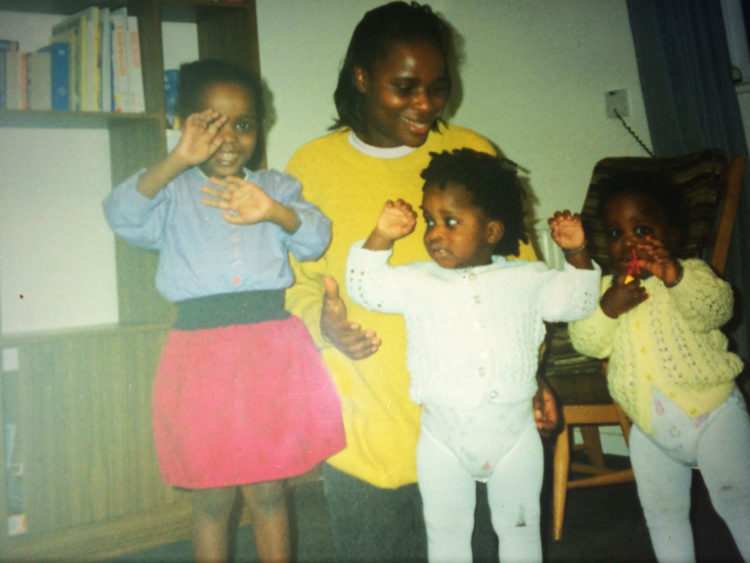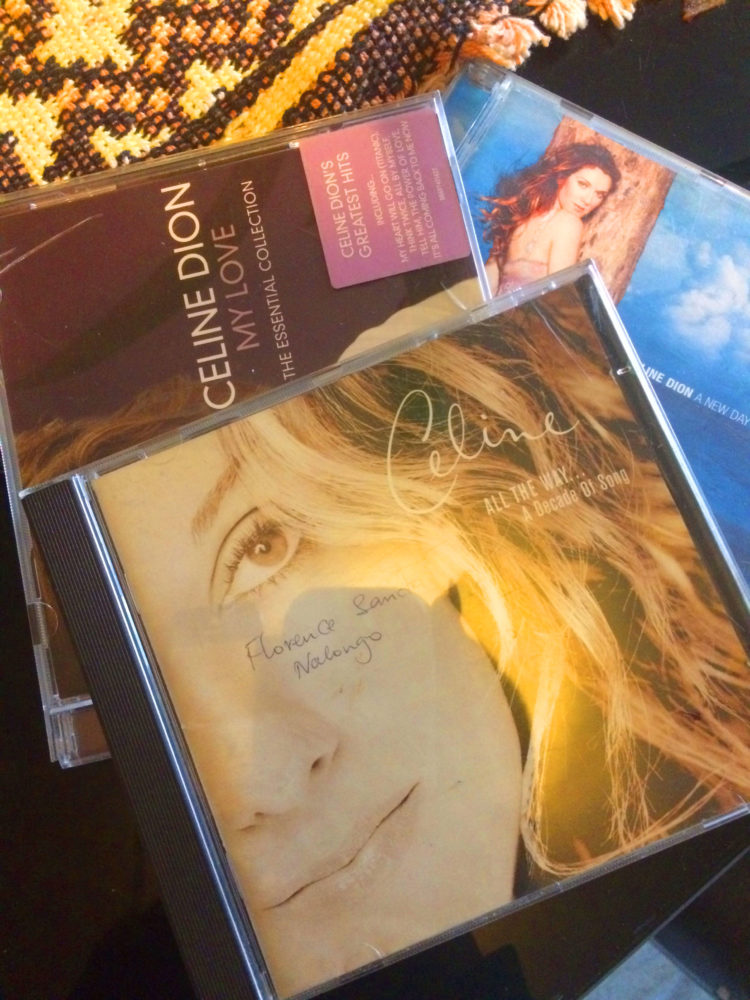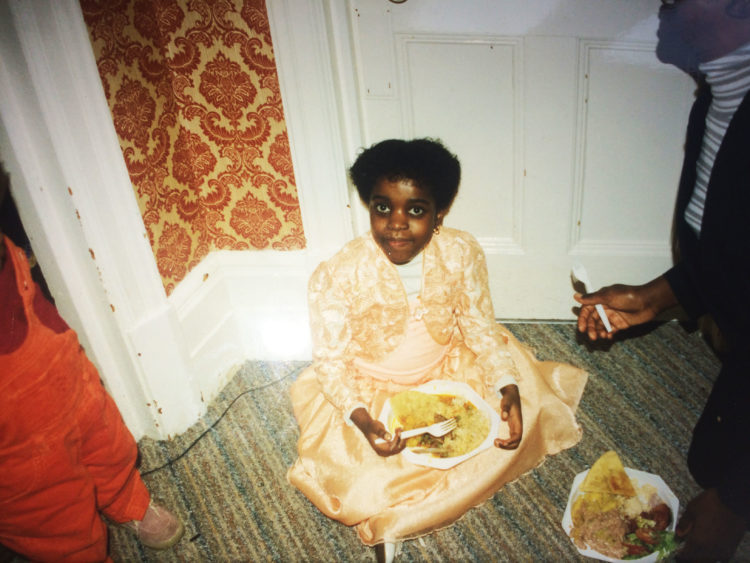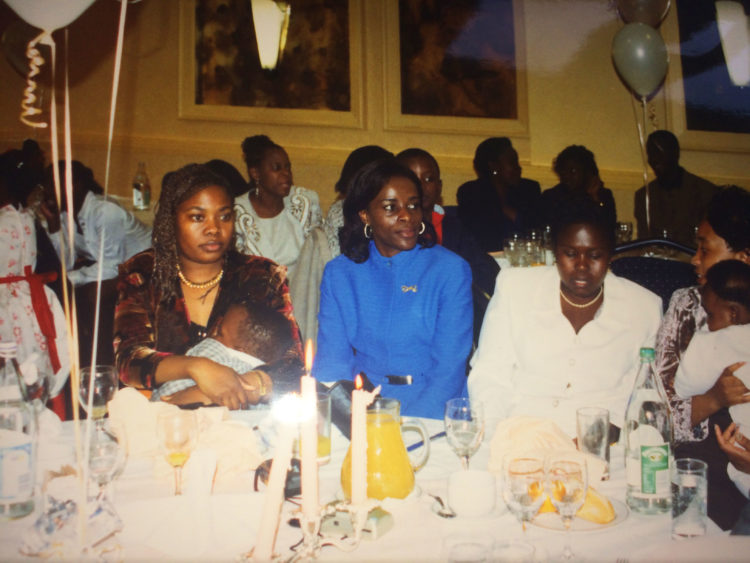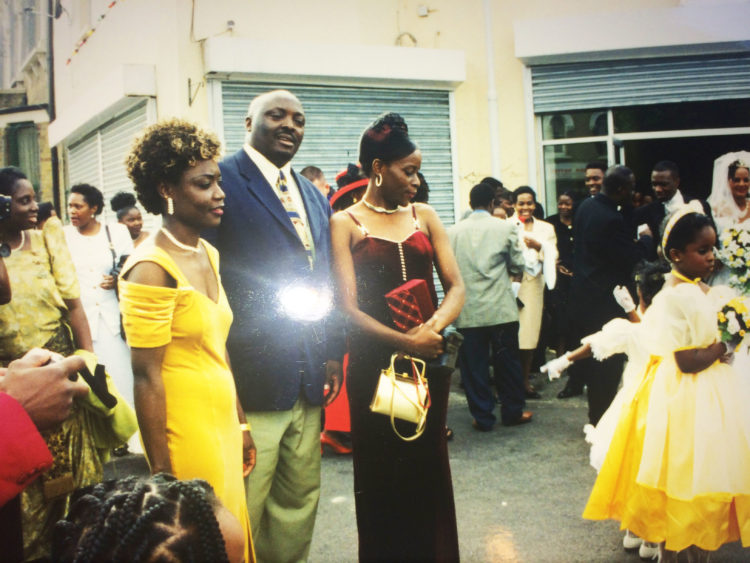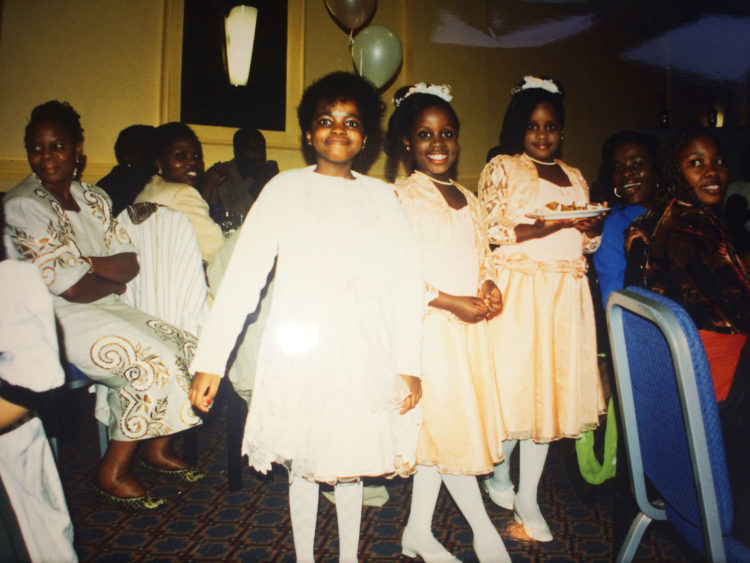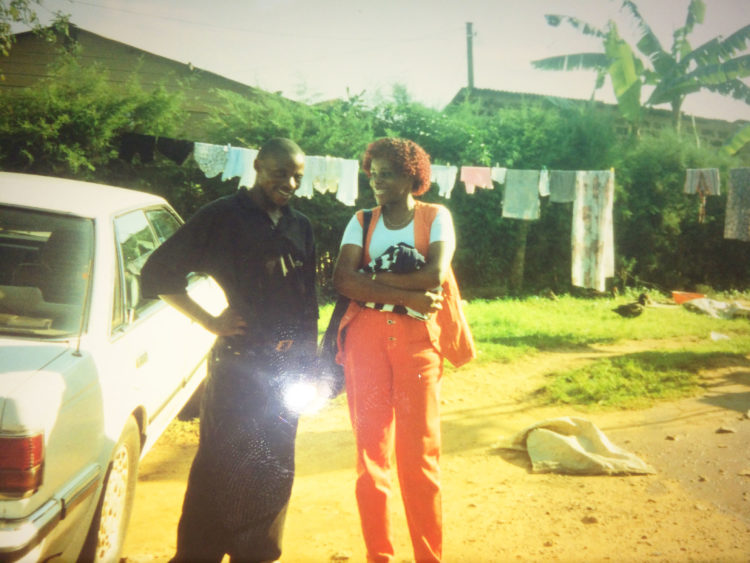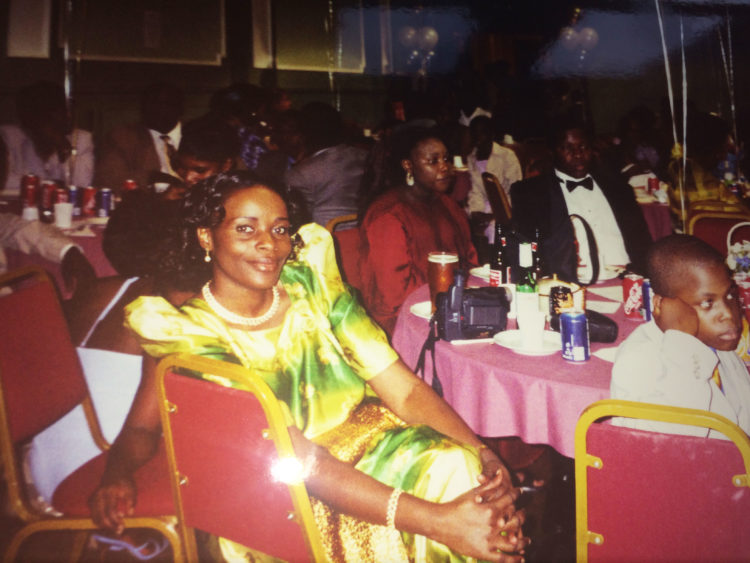As part of Black History Month, we’ve asked Vanessa Babirye and Michelle Tiwo from Ackee and Saltfish to guest edit TRUE Africa. They’ve produced a series of pieces which show how they see the world and the African part of them. This is their personal Black History.
‘Music was my refuge. I could crawl into the space between the notes and curl my back to loneliness.’ ~Maya Angelou, Gather Together in My Name
My cousin just read me that quote. She is at that age where she’s doing things for herself like quoting Maya Angelou and buying her own hair products. She spends her Saturdays with her friends, doing friend things and subconsciously and consciously forming an actual opinion on society today. I delight in my poker face, all the while having a trivial panic at the fact that these next few years of her life will shape how she views herself – let alone men, sex, competition and success.
When she asked me to take her to see Disney’s The Queen of Katwe I was excited. We’re both first-generation, British-born Ugandans. At her age of twelve, The Last King of Scotland was the only depiction I’d seen of the country I come from. Of course I jumped at the chance to be the one to share that experience with her.
We all know that big-budget, high-profile Hollywood arrangements of people, places and historical events often neglect nuance, truth and exactitude. I felt more than ready to have the ‘this is only a film’ talk before she digested Disney’s visual landscapes as gospel. But the sheer thought that she was eager to see a film purely because it’s set in the country that her mother calls home was one that put me to sleep very contentedly that evening.
When I look back, my earliest experiences of Uganda aren’t from the silver screen, rather they are the ones that were faithfully fashioned by my mother. An assortment of photographs scattered throughout this article, memories and an upkeep of traditional values. She would describe Kampala with such romance and purity, the way a young woman talks about her first love. My mother could teleport home with one, deep breath and a sip of Merlot. To my mother, Uganda is a profound feeling. But for me, Uganda has become a profound sound.
Yvonne Chaka Chaka owned my Saturday mornings and I treasured it.
I grew up in a household that played music regularly. My mother had this incredible ability to listen to music to which she knew the lyrics, while watching television. All at the same time.
‘Mum can we please turn the music down though please?’ You had to ensure there were enough pleases in your questions. ‘Eastenders is next.’
‘I’m just listening to this one, then when the music starts you can watch in peace’
By music, she was referring to the Eastenders’ theme tune, by peace, she meant: I’m going upstairs to listen to music whilst watching Eastenders at the same time, because that’s how I like to do things. Unbelievable. In the morning, before she became hooked on a breakfast show called GMTV, radio stations and CDs invaded the early hours before school. Celine Dion has not released an album that my mother doesn’t own. Seriously.
When you came home from school, dinner was already in the air and you could see her cooking to the sound of pain, or joy, or whatever feeling took her for those moments. She listened so intently. She physically relished lyrics; savouring them and absorbing them.
‘I’m burning up, I’m burning up, my hearts on fire, I’m burning up!’ – Yvonne Chaka Chaka.
Once you heard Yvonne you knew it was a Saturday and that meant you knew you had to do housework. Yvonne Chaka Chaka owned my Saturday mornings and I treasured it. ‘She’s royalty!’ My mother would habitually say, because Yvonne had been dubbed the Princess of Africa. And of course I believed her every word; it meant that Yvonne was a real-life princess, and a superstar, and that meant I could be one too. That was all the more reason to ‘fight for your freedom’, one of her powerful anthems which still lifts me up to this day. We owned the video album too and I loved to watch this beautiful black woman show me what joy looked and sounded like.
The unforgettable Umqombothi (also an African beer) is a record that I request at family gatherings now. It brings back memories of toast and sweet bread. A meal designed for a princess superstar naturally. Let Him Go was a track my mother would sing along to, pointing at me, giving me advice to let my imaginary boyfriend go after he’s done me no good. An early lesson about black girl magic! Here is to you Yvonne and princess superstars everywhere.
My mother would talk with pride about how fine-looking the bride wass, how extravagant the cake was, the décor and the table placements.
Once chores were completed, it was off to see family and friends. Be that at a family gathering or a party or at somebody’s birthday. We’d mostly travel by car, which I loved because that meant listening to mother’s mix of the latest Ugandan reggae artists like Bebe Cool or Ugandan pop like Ragga Dee. My mother revelled in South African revival music. Miriam Makeba and Brenda Fassie were two of her icons.
But nothing could beat the delight of a wedding. Nothing. Weddings were enjoyable because they were one of the rare times I could take part in and experience traditional Bugandan culture outside of the four walls of my home. My mother would talk with pride about how fine-looking the bride was, how extravagant the cake was, the décor and the table placements.
I would watch large groups of women descend to their knees to greet men and how that interaction is different outside of this space. I would listen to my musical mother tongue, and how passionate every pastor is when he blesses the newlywed couple. The food: how it slightly differs to the way my mother makes it, but it’s just as good and there’s so much of it. I saw other Ugandan girls in their pretty dresses and stunning hairstyles and wished they went to my school so I wouldn’t have to explain my existence everyday. The endless amounts of soft drinks and Mandaze galore.
As soon as that drum drops, women haste to get their coats, jacket or even scarf, to wrap them around their waist and flock to the dance floor.
Then came the music. You would hear the romantic slower love songs by the legend that is Jimmy Katumba and watch all the elders dance with their partners.
But me, I looked forward to the Bakisimba dance. From Buganda, Uganda’s largest sub-nation kingdom, the traditional Bakisimba dance was teamed with Lule David Frobisher’s version of Empologoma Ya Yuda. It is a marriage that just works. What Ugandan wedding is complete without the Bakisimba?! As soon as that drum drops, women haste to get their coats, jacket or even scarf, to wrap them around their waist and flock to the dance floor.
It’s a dance you execute whilst moving forward, so some women take their shoes off while others prepare for a thigh work out in heels. Men join in too. Children come and try to keep up. An entire congregation of people unite to dance a dance of celebration. It’s glorious. What is more radical that joy?
The older I became the easier it became to identify cognitive dissonance. That feeling of doing something or agreeing with someone or performing an act that just doesn’t sit right within your core? I still heeded and valued music that came from my country but did not want to acknowledge it. I’d just heard a song Mamambire by Juliana Kanyomozi and it became a favourite. In private.
Being African wasn’t cool unless you were from either Nigeria or Ghana and there were lots of you or better yet you were the majority.
When I was growing up the Africa versus the Caribbean exchanges were unending. And I wasn’t that person proudly and openly celebrating my culture. I wanted to but I was silent. I grew up in the east side of London, in Bethnal Green. For me, being African wasn’t cool unless some sort of American validation was a part of it. Unless a highly visible American was proudly African no one validated you. Being African wasn’t cool unless you were from either Nigeria or Ghana and there were lots of you or better yet you were the majority. (People are always scared of large groups of black people). Being African wasn’t cool unless you ‘looked European’ and ‘spoke properly’. Being African wasn’t cool if anybody heard you speaking your mother tongue. Being African wasn’t cool if you were a girl.
I recall a conversation. I was 14 or 15 and I was besotted with this quirky white boy from my school. He told me that I was the ‘prettiest black girl’ in my class (bearing in mind I was the only black girl in my class) and that he wanted to take me out to eat. But he had a dilemma. He didn’t know where to take me, because he had never taken a black girl out before. Taken aback, I assured him that black girls eat food just like every other race. He seemed confused and assured me, that he was referring to ‘black black’ girls. I didn’t understand. He placed his arm around my shoulder softly, pulled me in close and whispered in my ear:
‘You know what I mean, black black, like African. Not the nicer blacks like Jamaicans but Iike your lot.’ He laughed whilst my heart bled. I ran home in tears. That was the first night I had the ‘talk’ with my mother:
‘Bumble bee,’ (she often called me bumble bee). ‘Look at your complexion. Do you know how many women would die to have your complexion?’
‘But I don’t want to be this colour, that’s not what I want. That’s not what they want’
‘But it is who you are. Who is they? This is how God wanted you to be. God doesn’t make mistakes. You don’t know how beautiful you are darling, but I do, and one day so will you. He was pushing above his weight anyway the idiot, look at you! Do you know civilisation started in eastern Africa? Mukwano [meaning friend], you are a queen.’
She then played me 2face’s ‘African Queen’. Here’s to black black women everywhere, go on take your throne.
Visiting Uganda for the first time was overwhelming and life changing. Striding off of that plane to be welcomed by unyielding sun and honeyed, full, impenetrable air just made sense to the inner part of me. Miles and miles of an ocean of burgundy earth, springing up mountains of scarlet ant hills and golden pavements. The images I’d painted in my head were erased – the real deal was so breathtaking that I felt that I had to whisper. Meeting my cousins was a blessing.
We shared abundant songs and films about sisterhood and love and spoke often about how much music saves and unites. It made sense to me. They spoke of happiness not being a destination. They spoke about how dance is healing and how privileged we are to be able to the execute gift of hearing. Music was in their blood. We connected instantly, the way young girls do when they’re the minority, and they revealed to me the girl groups they loved and boy bands they fancied. They had lived their lives being the majority race and culture and that had shaped them.
Music gives you catharsis and identity and hope.
And as a result they were so proud of where they came from. It affirmed me to know that they treasured this continent. Because so did I. Being Ugandan was normal here; there was no other way to be. I basked in it. Phenomenally.
Then that second took place and I was an adult. Adulting. Navigating space with the knowledge that I am 100 per cent responsible for my actions but never 100 per cent free. So, you use what you can and do what you can, when and if you can. Time is sieved into intricate boxes and self-care is something you actively, purposefully have to make time for because all this time alone you spend with yourself must surely at some point be spent on yourself? Ultimately you cannot control free, content and liberated people so capitalism finds a way to keep you second guessing. And you’re trying to dismantle everything society is telling you to be or to want, so that you can make it make sense to what you want to be, who you actually are and what you truly want. And music gives you catharsis and identity and hope.
I know I can heal because I’ve seen my mother’s scars. My mother showed me her scars through song and for that gift I am thankful. Whenever there was joy there was music. Whenever there was pain there was music. Whenever there was family, there was music. Whenever I felt at home – wherever I felt at home, music lived there. For song I am grateful. For what music has given my people I am grateful. For what music gives me, I am truly grateful.
Here’s the next generation:
Worlasi
Listen to his latest tune Nukata
Born on the 23 September 1990, he has an HND in Painting from Takoradi Polytechnic in Ghana. He has worked with almost every major artiste in Ghana including Sarkodie, M.anifest, EL, Sena Dagadu, Wanlov, Kwaw Kese, Reggie Rockstone, Hammer, Edem, etc. and is currently one of the most talked about new artists in Ghana. He is at present signed to supremeRights a media label based in Ghana.
Twitter and IG: @worlasi
Etcetera
Listen to his latest tune: Korobela
Rapper/singer/songwriter Etcetera from SA burns incense on stage before beginning each of his performances. He softly utters his clan praises, on bended knee, an ancient Zulu practice, asking his ancestors to bless the performance. The live band he tours with only accentuates the heightened energy of his music. The first single is entitled Korobela, taken from Inkunzi Emnyama – EP (a Zulu phrase, meaning the Black Bull.) Etcetera holds two degrees in the mathematical sciences, and is actively pursuing a Masters in financial mathematics.
And a fellow Londoner to finish off…
Alxndr London
His EP A Long Time Ago can be listened to here
Singer/songwriter from East London is exploring the thin veil between fantasy and reality, from alternative soul to experimental electronica. A true creative whilst maintaining an unmistakable warmth and character caught the eye of BBC Radio 1’s Annie Mac, who featured the elusive wanderer on her ‘New Names to Watch in 2016’ list, while i-D premiered his sound as ‘nu-soul soaked electronica’. He’ll be on stage with Tsar B leading to his headline show at The Nines, 15th Nov.

